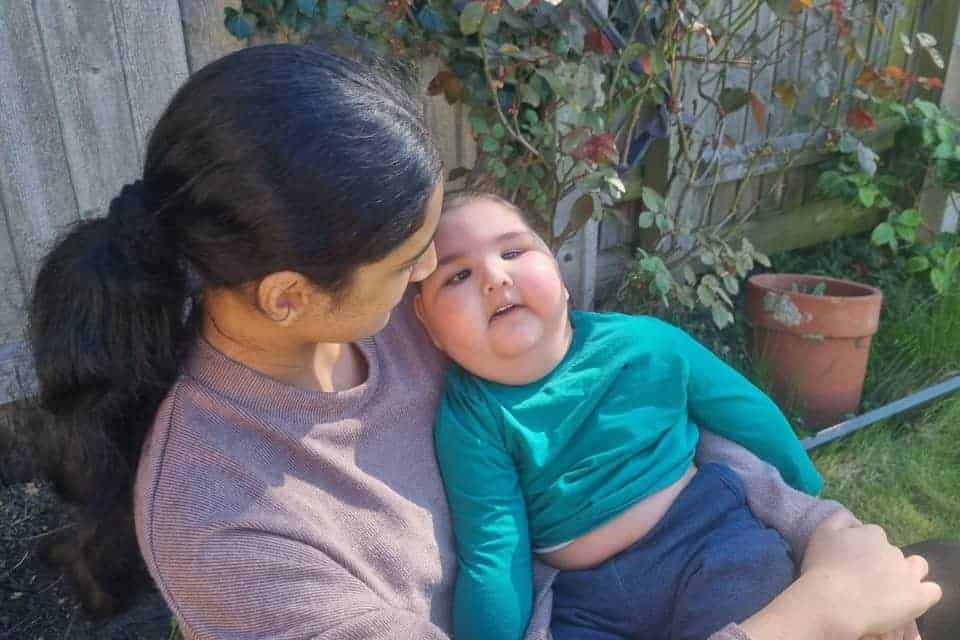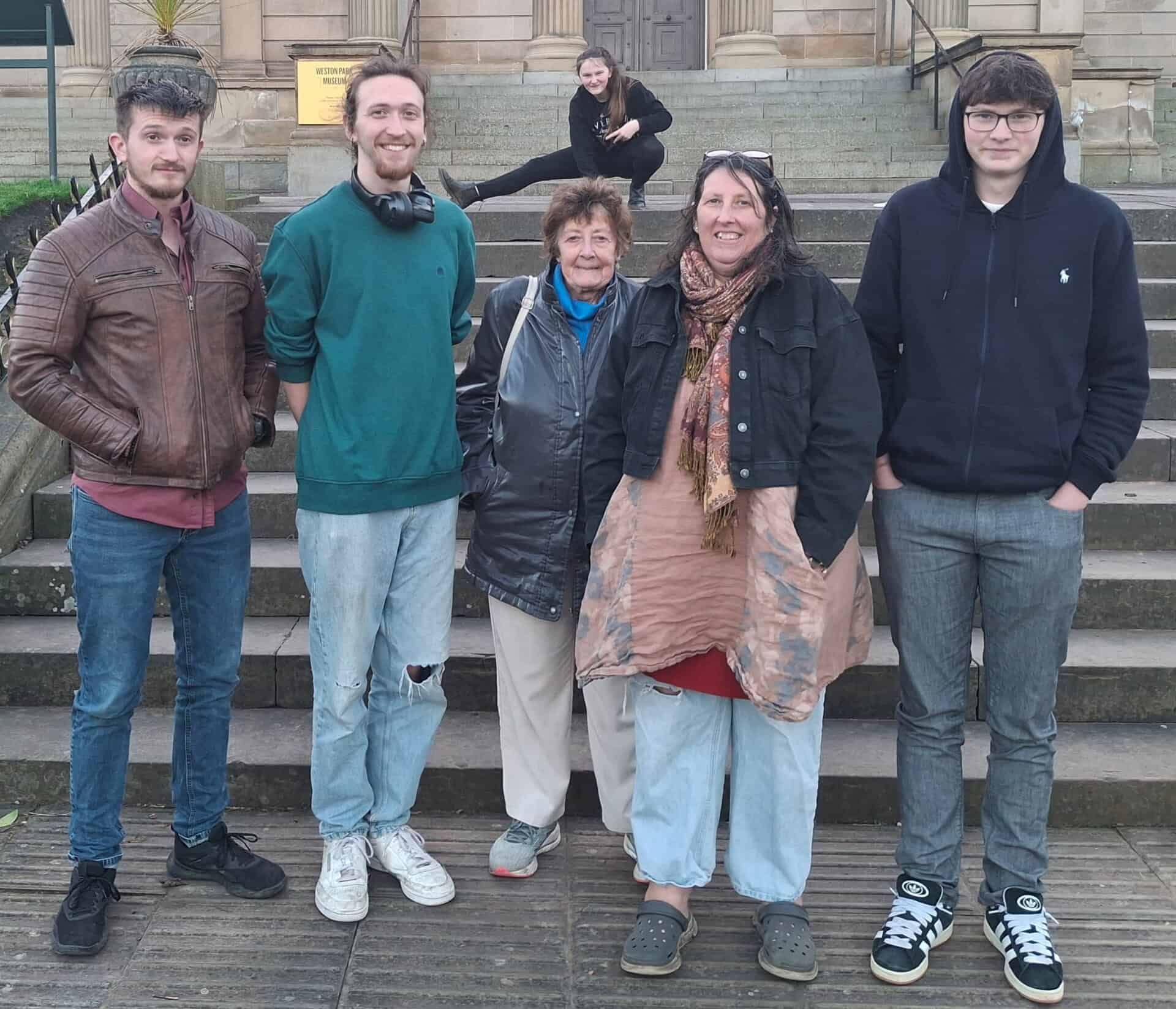A mum whose son lives with a rare genetic condition is sharing their story to help break the stigma of children’s hospice care.
Zak Asif, who turns two next month, has Galloway-Mowat Syndrome. He was diagnosed at nine months, is unable to sit independently and uses a special feeding tube. The disorder also impacts his kidneys.
He and his family – mum Farzana, dad Asif and siblings Ruwaida, 15, Talha, 11, and Huzaifa, eight – receive care and support from East Anglia’s Children’s Hospices (EACH).
They have not yet been to the charity’s hospice in Milton but receive regular visits from the care team at home in Peterborough.
Farzana says it has made a significant impact and was speaking on the first day of national Children’s Hospice Week – a week dedicated to raising awareness and funds for children’s hospice and palliative care services across the UK.
“I admit I was reluctant at the start and wasn’t sure I was ready to have that conversation,” she said.
“My understanding of a hospice was that it was a place people went to die.
“Zak had only recently been diagnosed, about two months before, and I was still in denial. I wasn’t prepared to accept my baby had such an awful, rare condition. It couldn’t be happening to us.
“My husband was quite sceptical, too. When EACH was first mentioned, he’d say ‘just say no. Why do we need help from a hospice?’
“However, in time, our opinions changed dramatically, and one of the things that impressed me most was the support for our whole family, not just Zak.
“EACH was there at a time when we were still feeling numb and vulnerable, and it makes me question why I was reluctant in the first place.”
Farzana believes others in Peterborough would benefit from EACH’s support – generally but also within the Asian community.
She feels there is a lack of awareness and believes people harbour negative stereotypes and misconceptions about children’s hospices.
She understands why, given her own trepidation, but is urging those in need to reach out.
“People here in Peterborough don’t know enough about EACH,” said Farzana.
“They don’t know about the different services and probably have the same misconceptions as me.
“That’s one of the reasons I wanted to share our story – to raise awareness and stress that hospice care doesn’t have to be a scary prospect. It can become a vitally important part of a family’s journey.
“I think it’s more of a personal, human thing, rather than necessarily being cultural.
“Having said that, given the multi-cultural city we live in, their resistance, or reluctance, might be heightened by a possible language barrier, especially if they’re the first generation to migrate here from Asia.
“They might not have the communication skills to fully understand the support EACH provides.”
Farzana says attitudes towards hospice care can be different in the Asian community.
“In India, where my parents are from, births and deaths are supposed to happen at home,” she said.
“That attitude might make people reluctant to accept help from a children’s hospice.
“However, EACH gives people options, and a child’s end-of-life care can be provided in a family’s home, just as it can in a hospital or the wider community. It doesn’t have to happen in a hospice.
“It’s also important for people to know more about places like Milton.
“It’s not just about death and dying. Instead, it can be a happy place where people enjoy spending time, creating memories, experiencing different things and meeting new people.
“It can be a place where they laugh, cry, offload and rant, and it’s about having an all-important extra layer of support.
“Before EACH came along, I thought of hospice care in black and white, but now I see it in colour.”
While a proud member of Peterborough’s Asian community, Farzana believes a lack of awareness regarding hospice care is a general issue and not necessarily related to people’s backgrounds.
“My husband and I know many other families that would benefit from EACH’s services,” she said.
“If there was something more local, I’m sure more people would ask for help.
“That’s the only obstacle, as far as I can see, especially as some people might not drive and be able to get to Milton.
“In addition, I think hospice care is still a taboo for many, because no-one wants to talk about death.
“They don’t know how to deal with it, which is why they’re often uncomfortable saying things like ‘condolences’ or ‘I’m sorry for your loss’.
“They don’t want the person they’re talking to be upset, so quickly move the conversation on.
“Let’s be honest – most of us see death as a scary thing, and there’s a fear of the unknown. That’s why people avoid talking about hospices in general.
“However, death is just as important as birth and needs to be discussed. It’s a reality, and the most natural thing in the world.”



